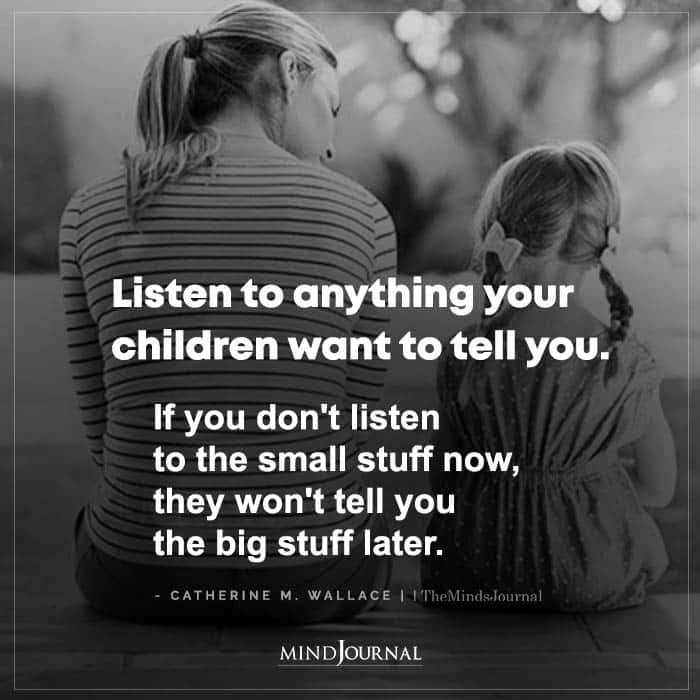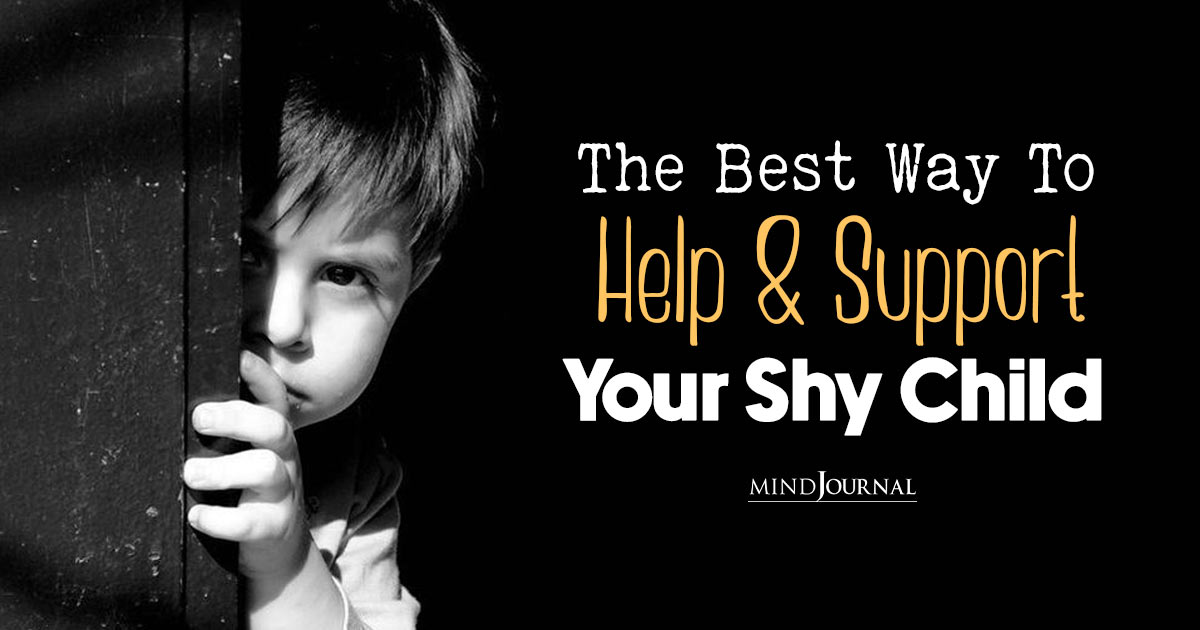When it comes to dealing with a shy child, as a parent, you need to make sure that you raise them to be independent, self-assured, and heard and validated at the same time. This article is going to explore the best way to help your shy child, and why it’s the right way.
Shy children are at greater risk when compared to outgoing children, of being bullied, feeling insecure, having bouts of chronic sadness, giving in to peer pressure, and having anxiety.
What’s more, the shy child who has grown into adulthood is likely to remain insecure and socially withdrawn. If their early experiences included significant verbal bullying then they are more, as an adult, to be at greater risk for alcohol dependence or abuse.
They are also more likely to delay getting married and fail to advance as far within their careers as their non-shy peers.
Many mothers and fathers feel at a loss regarding how to help their very shy child. When pressed to act more independently the child frequently freezes in fear. Or tears begin to well up and lower lips begin to tremble.
At this point, it can feel cruel to insist that the child do whatever was asked (say hello to an adult, speak to a waitress when ordering a meal, play independently on the playground, go to a friend’s house for a play date, and so forth).
Consequently, many mothers and fathers step in and ‘save’ their child from the distress. Unfortunately, what the child learns from this is that he, or she, does not need to act more independently. Even worse, many children will see being ‘saved’ as a sign that their parents don’t think they are capable of doing what was asked.
That leads to greater insecurity, and an increased tendency to avoid what makes them uncomfortable.
Related: 11 Superpowers of An Introverted Child
The Solution
As with many parenting dilemmas, the solution is straightforward. Push your shy child to act with greater assertiveness. Be kind, be patient, but be unrelenting in this regard.
Giving in to the temptation to save your son or daughter from the momentary distress of facing their insecurities may seem loving, but the truth is such actions do them a great disservice.
Your child needs to be prepared for the future. And despite the many unknowns about the future, one thing is certain, your child is headed into the world of adolescence followed by adulthood.
Neither of these destinations favors the insecure and shy individual. To thrive requires the ability to assert oneself. Children who have not learned how to appropriately do so are at a severe disadvantage. The weight of this challenge becomes even heavier upon entering adulthood.
Just as you would teach your child survival skills if you knew he/she was going to be left alone in the woods for several days, it is similarly necessary that you teach your child the skills needed to navigate the world of adulthood. This requires that your son or daughter learn to effectively deal with shyness.
The major stumbling block you will face when attempting to help your child is the same one most parents face: putting aside the urge to save your youngster from anxiety.
Buck up. Your child is counting on you.

The Steps You Can Take
The best way to help your shy child become more confident is by having him, or her, behave as though they already felt bold and self-assured. This means you will need to develop a plan that involves a series of assertiveness steps, each one being somewhat more challenging than the one that came before.
For example, you may decide that your shy 7-year-old son needs to begin this journey by learning to say hello to adults. This may seem like a small insignificant skill, but it is the start of him learning to be comfortable speaking with grownups.
That means it takes on extra importance. You want him to succeed, to gain confidence and momentum.
Begin by explaining to your son that you very much want him to be able to meet others and not feel anxious. With that in mind you are going to teach him how to do this, and by the time he has learned this skill he will feel terrific.
Your son thinks this is a bad idea, but you don’t argue or go into lengthy explanations. Instead, you move on to teach the basic skill of how to say hello to adults.
“OK, so the next time we meet one of my co-workers I want you to look them in the eye, put your hand out, and say ‘Hello, it’s nice to meet you.’ That’s it. Six words, a look in the eye and a handshake. Got it?”
Your son thinks you have lost your mind, but he nods in agreement anyway.
Related: 9 Tips to Help Introverted Children Thrive In An Extroverted World
You add, “Now we are going to practice.” At this point, you tell your son that he is to walk into the room pretending to be the adult. You will pretend to be a child, and you proceed to act out the brief encounter.
This is modeling the desired behavior. It helps if he sees what you want him to do before he tries it himself.
“Terrific. See how easy that was?” Unimpressed your son remains quiet.
“Now it’s time for you to give it a try.” You leave the room, walk in again, and wait for your son to go through the eye contact, hand extension, and ‘Hello, it’s nice to meet you” sequence.
Be prepared to repeat this several times. Don’t insist on perfection. Getting it close is fine.
This is the practice phase.
Now you arrange to take your son to work (or anywhere else you can introduce him to someone new).
As long as your son tries to perform the steps you taught him, count it as a success. Praise him for the effort.
Then repeat… as often as possible. Keep repeating until it becomes boring to him. Then move on to the next step.
And you ask, what is the next step?
There are many possibilities. It might be to have him place his own order when you go to a restaurant. Or to purchase something at a store and say hello to the clerk. Maybe it will be to invite a friend over for a playdate.
With each child, the next step (and even the first step) may differ. The main idea is to continue to choose a slightly more challenging situation that will grow your son or daughter’s skills and confidence.
Before he is tasked with performing each step go through the modeling step. It’s your job to help him be prepared.
After he attempts the step provide some encouragement. “Good job” or “I’m proud of you” goes a long way to increase motivation.
Confidence Building Experiences – Examples
There are many opportunities for building confidence. Below is a short list:
- Joining a sports team, dance class, Boy Scouts/Girl Scouts, etc.
- Asking questions in class.
- Helping when you volunteer at a charity or church.
- Assigning chores at home (and insisting that they be done on time and correctly).
- Writing thank you notes after receiving gifts.
- Joining a local theater group (standing on stage in front of an audience can be tough).
- Running an errand such as asking a neighbor to borrow something.
- Answering the door to accept a package.
- Joining a school club/organization (Yearbook Club, school newspaper, etc.)
Related: 11 Anxiety Disguises In Kids That Many Parents Fail To Notice
How Long Will This Take?
For a child with mild shyness, it may take only a few months to develop much greater confidence. Extremely shy children, however, may require this sort of active guidance and encouragement throughout childhood and into adolescence.
If this is the case, you will likely find that over time your youngster will begin to set up his/her own series of steps for overcoming the specific challenges shyness raises in each new developmental phase (for example, overcoming shyness related to dating, going to school dances, job interviews and so forth).
What If My Child Fails At These Tasks?
Occasional failure is a certainty. When developing a new skill everyone makes mistakes. One of the keys to becoming confident is learning that failure is not a catastrophic event. Shy children tend to exaggerate the consequences of making mistakes and looking foolish.
But the experience of failure provides the antidote to that fear. It proves that speaking up, asserting yourself, and having things go badly is not the end of the world. Life moves on. No one really cares too much. This, in turn, helps the shy child begin to see that the risk of being assertive is not so great after all.
Conclusion
The benefits of overcoming shyness are enormous. Conversely, the risks attached to lacking confidence and assertiveness when entering adolescence and young adulthood are significant.
Your child is unlikely to outgrow shyness on his/her own. This means it is up to you, the parent, to take action. Building confidence in your child requires time, and it will take a little additional effort. But it’s not complicated, nor is it overly demanding.
Related: 7 Struggles Every INTJ Kid Has Had
What your child receives from your efforts, however, are benefits that last a lifetime. Get started today and let me know if you have questions.
Written By Forrest Talley Originally Appeared On Forrest Talley










Leave a Reply